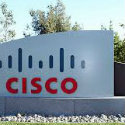Cisco to Buy Acacia for Pluggable Optical Goodness
Cisco said it would buy Acacia and the components vendor's current optical transport customers need not worry. The move is seen as positive overall, but one analyst explained why Arista should probably be more concerned than ADVA.

Cisco has agreed to buy Acacia for $70.00 per share, or about $2.6 billion, the companies announced today.
In doing so, Cisco is totally disrupting the optical transport market. With Acacia, Cisco would suddenly become the key supplier of coherent optical interconnect components -- embedded modules, pluggable modules and semiconductors.
"It's a brilliant deal and can put Cisco in a leadership position as the world transitions to pluggable and interoperable coherent optics," said Andrew Schmitt, long-time optical industry analyst and founder of Cignal AI, when Light Reading contacted him via email. "Both companies shared a common vision before the deal, and I believe it was this common vision that allowed Cisco to convince Acacia -- managed by very intellectual and financially independent people -- to join Cisco."
In the war against optical transport leader Ciena, nearly all the other suppliers buy their ammo from Acacia.
"Cisco indicated that it plans to support Acacia's existing and new customers, which we think could help offset some opposition to the deal," writes Raymond James analyst Simon Leopold, in a note sent to clients this morning. "However, we imagine that top Acacia customers such as ZTE and ADVA might be concerned. The deal suggests that Cisco intends to compete directly with the optical systems leaders Huawei, Ciena and Nokia."
Now, here's the fun part: Cisco may not just be focused on optical systems one-upmanship, even though it just turned it on its ear.
Acacia's technology allows telcos, enterprises and cloud providers to operate optical transmission equipment at speeds up to 400 Gbit/s today, and that's heading toward 1 Tbit/s (and above). The firm is a leader in the still-developing market for 400ZR pluggable optics. The web-scale cloud providers are huge consumers of these -- and all other kinds of components that allow high-speed, low-cost, huge-throughput connections between data centers.
"[Web-scale providers] say, deliver me the performance, deliver the reliability, deliver the form factor and deliver the cost, and if you can do those things, you can have my business," Bill Gartner, VP and GM of Cisco's Optical Systems and Optics Group, told Light Reading back in December, when Cisco bought Carlsbad, Calif.-based Luxtera Inc. for $660 million in cash.
"Anything Cisco does at this point is really aimed at their switch router business," said Sterling Perrin, Heavy Reading's principal analyst covering optical networks & transport. "That's where all their money is and that's where their attention is, too."
Regarding 400ZR pluggable optics, Leopold writes, "This new form factor will bring coherent technology directly to switches and routers, enabling IP over DWDM and reducing the need for an external transport platform adjacent to the switch or router."
When you put both Luxtera and Acacia under one roof, you get something with far more upside than just giving ADVA or Infinera a headache. "I would say this is about owning everything to do with data center connectivity. It's primarily targeted towards the web-scale companies and their needs," Perrin said.
Acacia sold to just eight customers in 2011. It sold products to more than 30 companies last year. Its top customers in 2018 were ZTE (20% of revenue), Infinera (17%), ADVA (15%) and Cisco (14%). The Infinera total includes Coriant, which Infinera purchased last year.
Though there's potential for lots of hand-wringing by optical vendors, they're not the main focus as Cisco chases the larger market, and the larger companies focused on growing the size and reach of the cloud.
"If there's a competitor they've got in their sights, it would be Arista far above ZTE, Infinera, etc.," Perrin said. "They're gaining strength in the data center and in data center interconnect."
There are more threads to tug on as this deal goes from announcement to market reality, but Perrin's parting shot is noteworthy. "One other broader point: everyone talks about the importance of software in networking now, and it is important but networks still require hardware innovation," he said. "Acacia is a reminder of the continuing importance of hardware in networks that are increasingly fiber-optics."
Related posts:
— Phil Harvey, US Bureau Chief, Light Reading
About the Author(s)
You May Also Like




_International_Software_Products.jpeg?width=300&auto=webp&quality=80&disable=upscale)







